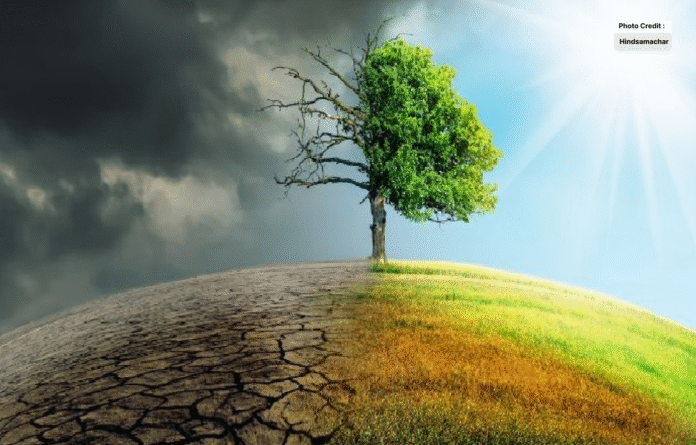Climate change could trigger earthquakes, study finds in northern Kenya.
According to recent studies conducted on Lake Turkana in northern Kenya, climate change could affect storms, droughts and floods as well as earthquakes, ground faults and underground lava flows.
While the movement of the Earth’s plates plays a fundamental role, weather conditions can change the speed of the Earth’s internal system, which can increase earthquakes and volcanic activity, the study was published by the University of Auckland in New Zealand under the direction of geologist James Muirhead.
The study examined the effects of climate change on 27 fault lines under Lake Turkana over the past 10,000 years. Between about 9,600 and 5,300 years ago, lake levels in Africa were higher and rainfall was higher. Drought caused the water level to drop.
Scientists claim that when the lake was full, the fault lines and lava started moving slowly due to the tension in the ground. But, when the water level dropped, the internal pressure of the earth dropped and the underground movement accelerated.
Also read: Mehwish Hayat Wants Representation of Women in Media
Professor Chris Schulz claims that the production of underground lava accelerated and the fault lines started moving faster as the lake level dropped.
This has been seen not only in Africa but also in Iceland and Yellowstone, where melting ice or water changes the internal pressure of the earth, which leads to more earthquakes and volcanic activity.
Research shows that when rainfall increases in the next few decades, the lake will fill up again, which will reduce the chances of earthquakes.




